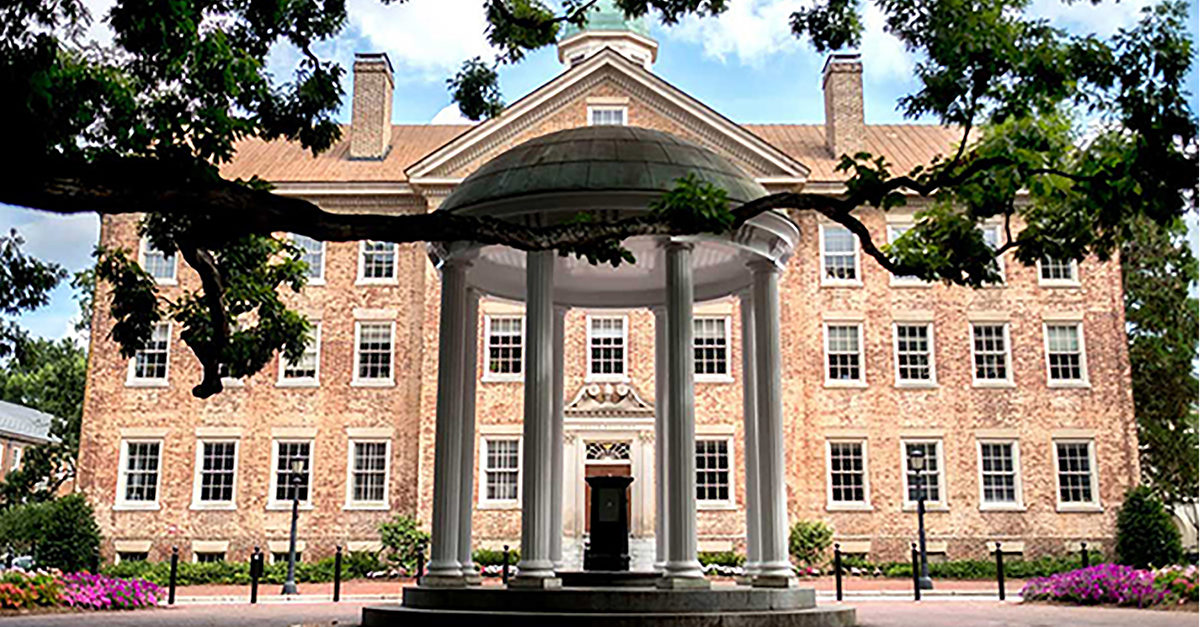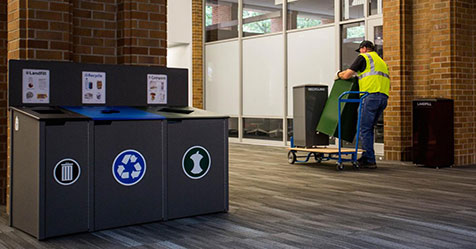Often university campuses are proficient at controlling waste originating in their facilities, but can be overwhelmed by materials coming on site from off-campus vendors.
“I suspect every campus is struggling with Amazon boxes,” said Brad Ives, chief sustainability officer and associate vice chancellor for campus enterprises at the University of North Carolina (UNC) in Chapel Hill, NC. “We have about 120,000 boxes delivered each year for slightly less than 10,000 students living on campus, and it’s causing a real recycling problem for us.”
Small Steps Yield Big Results
UNC has a long history of moving toward zero waste. It began recycling initiatives 30 years ago, started dormitory competitions 25 years ago to see which dorms could conserve the most water and energy, and began composting 20 years ago. Ten years ago, the campus noticed an excess amount of waste during student move-in and move-out days, especially plastic film and cardboard packing. In addition to helping students recycle packaging, the university began a “Don’t Ditch it, Donate it” campaign that allowed students to donate items they no longer needed after moving out of their dorm room. “We’ve salvaged 200 tons of stuff since 2009, everything from clothing and carpeting to small appliances like mini refrigerators,” Ives said. The University of Texas at Austin is another university that also tries to divert waste from the landfill by keeping tabs on unused items.
In 2016, UNC began its Three Zeros program, which aims to achieve water neutrality, greenhouse gas neutrality, and zero landfill waste. Sustainability staff is conducting a waste composition study, looking for ways to drastically increase its recycling waste, specifically polyethylene and aluminum, as well as plastics not accepted by most recycling centers.
Change from the Inside Out
UNC has banned noncompostable materials from its offerings on campus, such as Styrofoam food containers. Instead, campus restaurants and cafeterias use plastic and paper containers. First-year students who sign up for the meal plan get a reusable hot beverage cup, which entitles them to a discount at certain cafeterias. However, students often go off campus to eat, which invites Styrofoam containers back onto the property from local restaurants.
To deal with outside materials, as well as lack of knowledge about proper disposal procedures, the university has been focusing on changing people’s habits. “The No. 1 challenge for us and everyone else is culture change,” Ives said. “We’ve got one of the highest recycling rates in North Carolina, but we’re still seeing less than 50 percent of our waste being diverted from landfills.”
To drive results, sustainability staff worked with the psychology department to offer a course on behavior change and help students commit to changing their garbage disposal habits. Additionally, a campus concierge program places volunteers next to disposal bins to guide students on which items should be placed in compost and recycling bins, and which should be put in the landfill bins.
“No matter how good we are at physical infrastructure, all it takes is someone putting the wrong item in one bin for the entire bin to go to the landfill,” Ives said.




